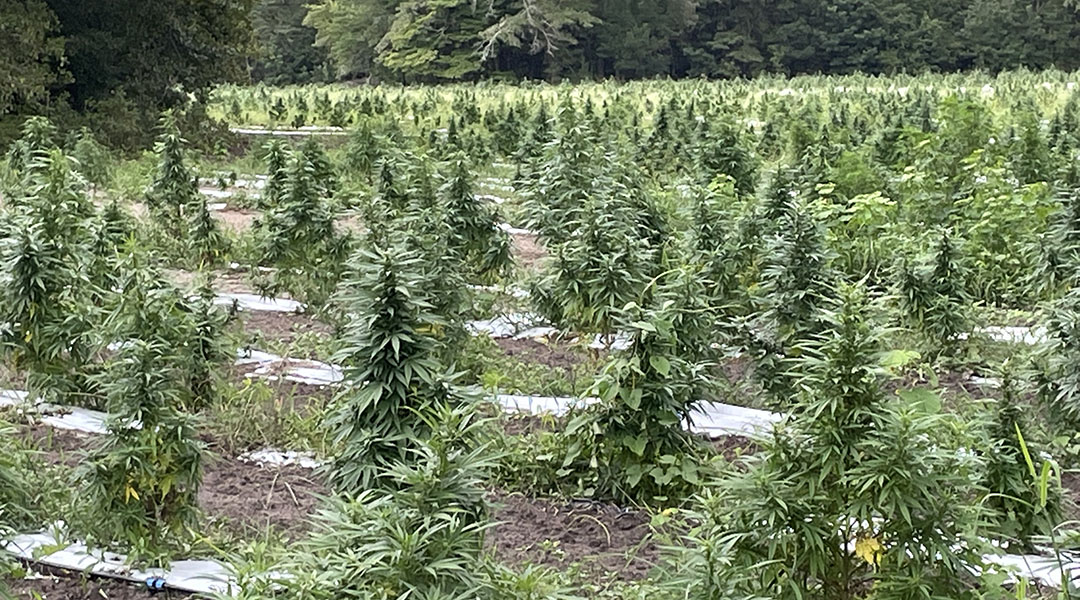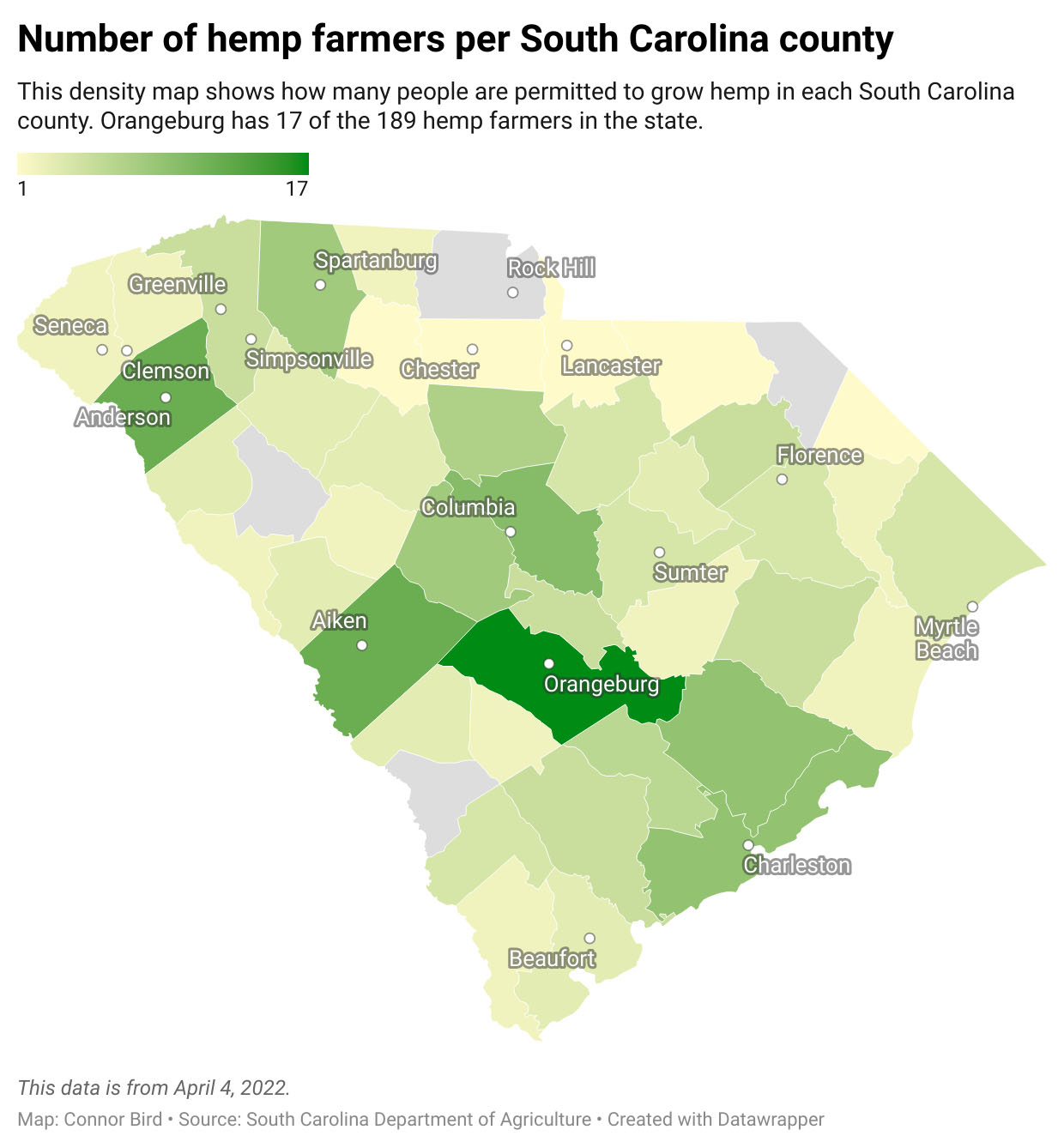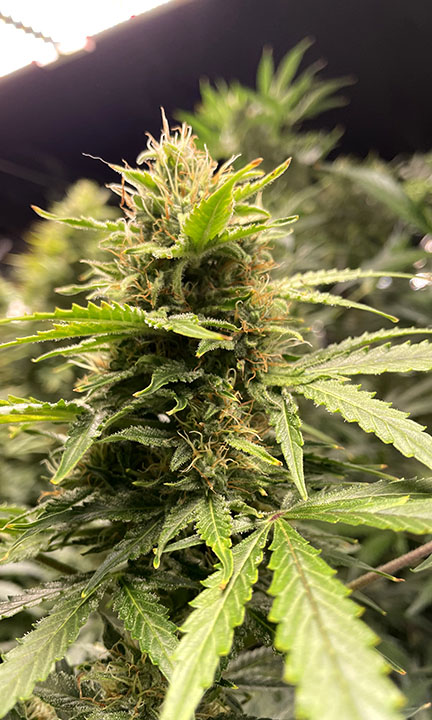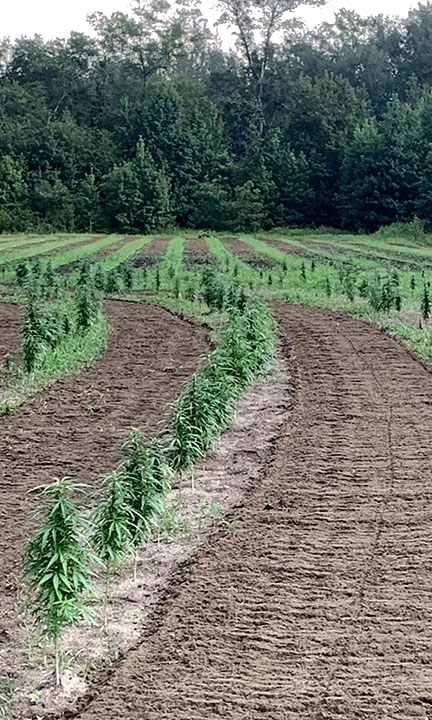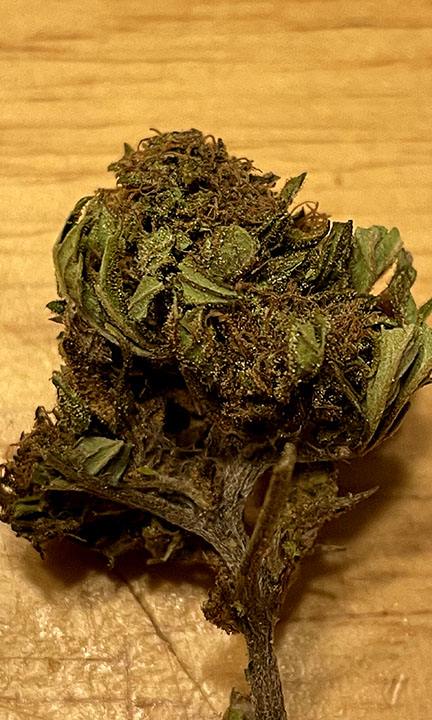Local farmer James Sharpe’s hemp field in Lexington (Photo courtesy of James Sharpe)
South Carolina has almost 200 permitted hemp farmers, but many say they’re not breaking even.
“To be successful in this industry, you need to have complete vertical integration,” said David Butler, a Lexington hemp farmer. “You need to be able to sell your finished product to make a profit. The farmer makes the least amount of money the way it is right now.”
South Carolina is cautious when it comes to selling hemp. The state requires people to have permits for different aspects of the hemp business – the growing and harvesting, the drying and then hiring processors to get the product ready for market.
And processing is tricky. Harvested plants must go out to be processed, often out of state because of strict S.C. regulations and the limited number of processors locally. Then, the farmer sells the finished product. And hemp flowers are far more regulated than the rest of the plant.
All of that makes it difficult for farmers make a profit, especially in today’s finicky market.
“Processors usually charge around 20 dollars per pound to process hemp,” said James Sharpe, a hemp farmer in Lexington. “It’s up to the farmer to get the hemp back and then sell the product. This creates a problem if the farmer doesn’t have deep pockets.”
The restrictions on hemp vary from state to state, which creates a legal gray area. Processors can contract freelance farmers to produce hemp for them, but there are no legal repercussions if the contractor backs out. This makes it harder for farmers to decide how much to grow.
“A big problem for everyone is that the market was really good right away, but eventually it died down,” said Muldrow Rigby, a new hemp farmer in Clarendon County. “I knew some people who grew too much their second year and didn’t know what to do with it.”
Hemp is harvested for its leaves and stem, which can be milled into a powdered biomass that is used to create oils to alleviate pain. The current S.C. market for hemp biomass is declining. Hemp flower is where the money is, Butler said. But it’s illegal in South Carolina to sell the unprocessed flower because it can used as an illegal drug.
Regardless, processors seem to hold all the cards, farmers say. And timing is everything.
“Flower grown indoors is worth $600 to $800 per pound,” Butler said. “Flower grown outdoors can be worth around $350 per pound. The problem is processors are the ones who turn it into product. If you can’t process your own product, they can wait until your flower starts to degrade then undersell you.”
There are eight processors in the state to serve the nearly 200 farmers.
Farmers can process their own hemp in South Carolina, but it has to be done at a different site from where the plants are grown. And the equipment is expensive.
Also, selling flower can be a difficult market to navigate. This is due to the THC that is produced in the flower, which is also found in marijuana. South Carolina law says any plant that has more than 0.3% THC — after being dried — is considered marijuana, which is illegal.
Many farmers decided not to risk growing product this year, Butler said. He said the cost to grow adds up quickly, and the market has been unpredictable.
“Hemp is such a labor-intensive crop,” said Roberta Davis, who farms in Lexington County. “After harvesting, you still have to send it out of state to be processed. We make less money, but it is what it is.”
This is a density map of how many hemp farmers are in each South Carolina county. The data is from the South Carolina Department of Agriculture’s website. (Connor Bird)
A hemp plant that is ready to harvest. The leaves and flowers are harvested and sold to processors. (Photo courtesy of James Sharpe)
A field of hemp plants that are not ready to harvest yet (Photo courtesy of James Sharpe)
A close-up of what a hemp flower looks like. They are also referred to as buds. (Photo courtesy of James Sharpe)

